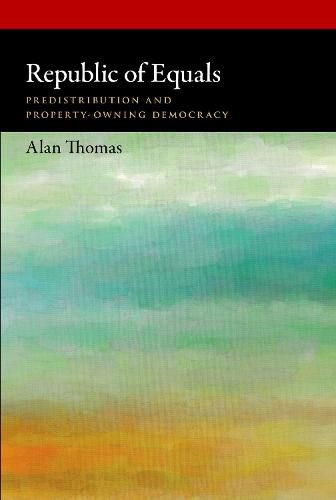Readings Newsletter
Become a Readings Member to make your shopping experience even easier.
Sign in or sign up for free!
You’re not far away from qualifying for FREE standard shipping within Australia
You’ve qualified for FREE standard shipping within Australia
The cart is loading…






The first book length study of property-owning democracy, Republic of Equals argues that a society in which capital is universally accessible to all citizens is uniquely placed to meet the demands of justice. Arguing from a basis in liberal-republican principles, this expanded conception of the economic structure of society contextualizes the market to make its transactions fair. The author shows that a property-owning democracy structures economic incentives such that the domination of one agent by another in the market is structurally impossible. The result is a renovated form of capitalism in which the free market is no longer a threat to social democratic values, but is potentially convergent with them. It is argued that a property-owning democracy has advantages that give it priority over rival forms of social organization such as welfare state capitalism and market socialist institutions. The book also addresses the currently high levels of inequality in the societies of the developed West to suggest a range of policies that target the New Inequality of our times. For this reason, the work engages not only with political philosophers such as John Rawls, Philip Pettit and John Tomasi, but also with the work of economists and historians such as Anthony B. Atkinson, Francois Bourguignon, Jacob S. Hacker, Lane Kenworthy, and Thomas Piketty.
$9.00 standard shipping within Australia
FREE standard shipping within Australia for orders over $100.00
Express & International shipping calculated at checkout
The first book length study of property-owning democracy, Republic of Equals argues that a society in which capital is universally accessible to all citizens is uniquely placed to meet the demands of justice. Arguing from a basis in liberal-republican principles, this expanded conception of the economic structure of society contextualizes the market to make its transactions fair. The author shows that a property-owning democracy structures economic incentives such that the domination of one agent by another in the market is structurally impossible. The result is a renovated form of capitalism in which the free market is no longer a threat to social democratic values, but is potentially convergent with them. It is argued that a property-owning democracy has advantages that give it priority over rival forms of social organization such as welfare state capitalism and market socialist institutions. The book also addresses the currently high levels of inequality in the societies of the developed West to suggest a range of policies that target the New Inequality of our times. For this reason, the work engages not only with political philosophers such as John Rawls, Philip Pettit and John Tomasi, but also with the work of economists and historians such as Anthony B. Atkinson, Francois Bourguignon, Jacob S. Hacker, Lane Kenworthy, and Thomas Piketty.